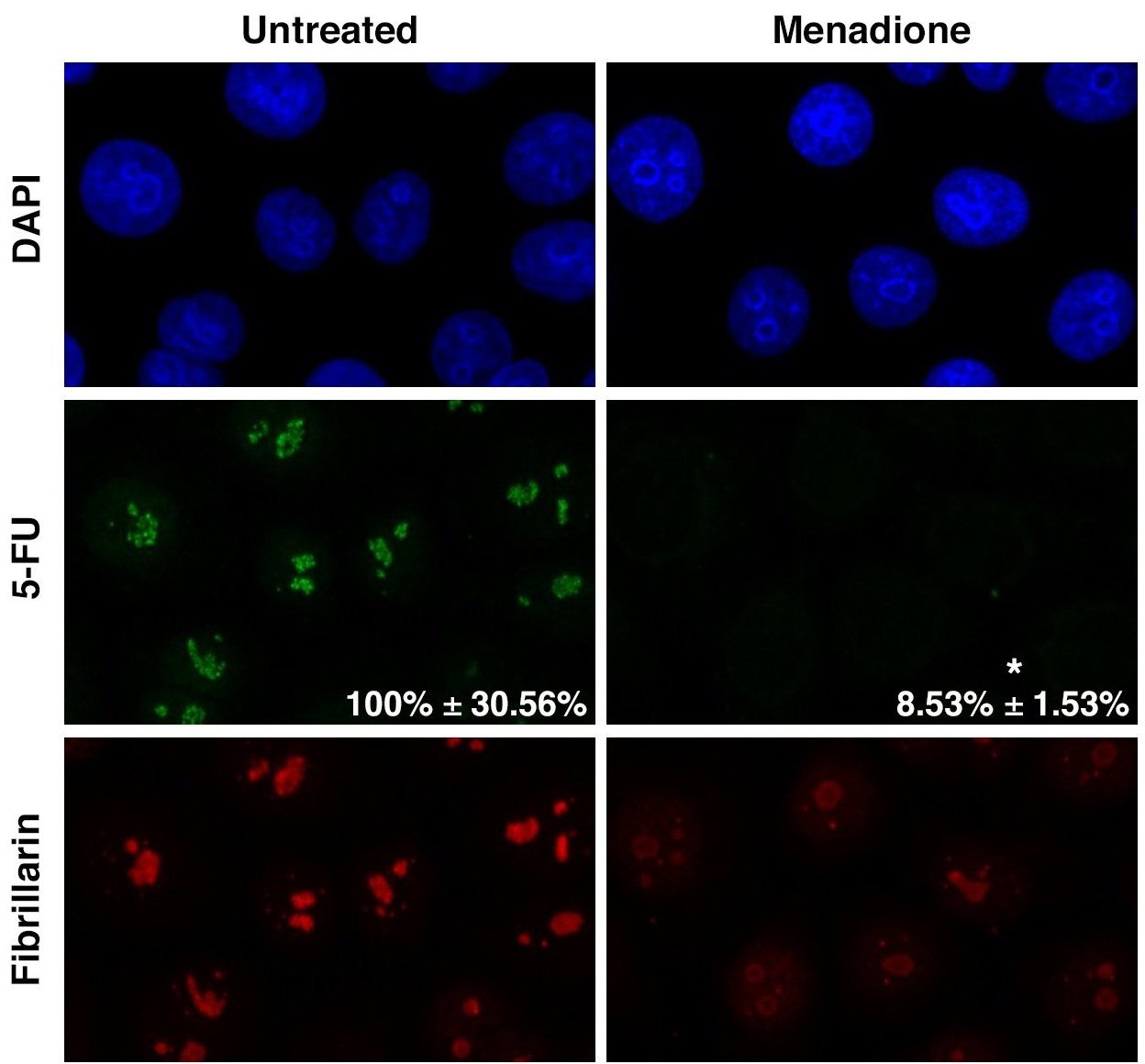2/ Cellular and nucleolar stress
P ROUSSEL, V SIRRI ROUSSEL, J RENAULT (Bioprofiler resource)
We study the effects of xenobiotics (in particular aromatic compounds such as naphthoquinones) on cells in culture. These compounds can induce cellular stress, which we assess by analyzing nucleolar activities and the cell cycle. Recently, we were able to show that certain naphthoquinones, such as menadione and plumbagin, inhibit the activity of sirtuins (NAD+-dependent class III deacetylases) in vivo and in vitro via sulfhydryl arylation at the active site, which is highly conserved in all sirtuins. Inhibition of the catalytic activity of Sirt7, a nucleolar sirtuin, results in repression of ribosomal transcription [observed in the figure below by inhibition of 5-FluoroUridine (5-FU) incorporation] and arrest of ribosomal pre-RNA maturation.

The inhibition of Sirt2 by plumbagin (PL) induces a cell division defect (figure below) resulting in particular from hyper-acetylation of a-tubulin, with consequences for the mitotic spindle.

Sirtuins are important players in a number of biological processes ranging from carbohydrate and lipid metabolism to cell cycle control. It appears that altering sirtuin activity could lead to the repression of numerous molecular pathways leading to age-related diseases such as cardiovascular disease, diabetes, neurodegenerative diseases and cancer. The effects of naphthoquinones on sirtuins therefore open up a broad range of research perspectives.
